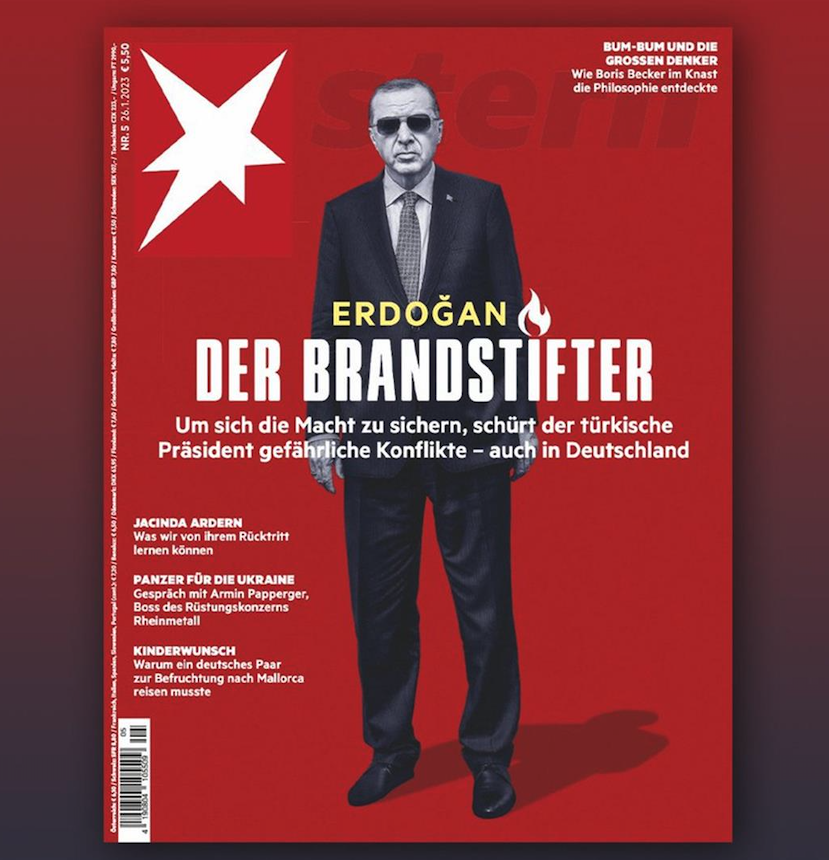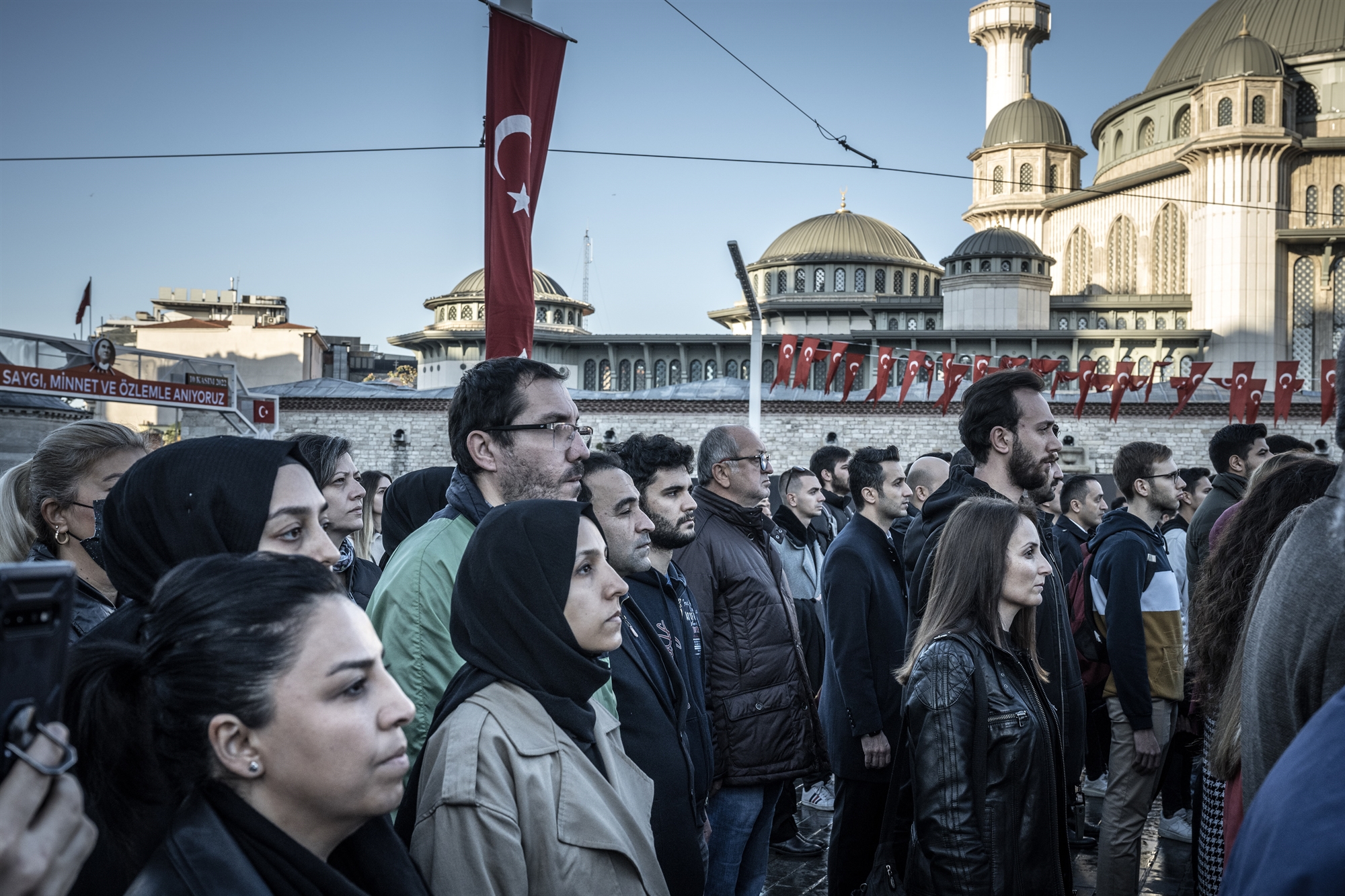
With the title “Pyro” and his photo Tayyip Erdogan last issue came out yesterday German magazine Stern.which complemented the series of negative publications of his international press against the President of Turkey.
The discomfort seems to be related to Ankara’s intransigent stance on its expansion. NATOwhat is blocking it Sweden And her Finland in the North Atlantic Alliance. In an article yesterday, Stern accuses Erdogan of fueling conflict not only in his own country, but also in Germany in order to stay in power.
“The cover was in the air for a while before the magazine went to print, we didn’t know for sure if Recep Tayyip Erdogan would visit Germany. It is known that he wants to use his influence with the Turks in Germany to enlist their support in the upcoming elections. He also wants to remain an agitator and instigator both nationally and internationally,” wrote the magazine’s director Gregor Peter Schmitz in an editorial.


“To secure power for himself, he stirs up conflicts in his country, in Syria and here in Germany. From Ukraine to Syria, Erdogan holds many threads in his hands and uses his power accordingly,” the magazine writes in another article. In connection with “K” with the officeHowever, the fact of the planned meeting with Olaf Solts is refuted, as reported by the Turkish media.
One week after scathing Economist article about the Erdogan regime and its slide towards autocracy, the pro-government part of the Turkish press continues to criticize the magazine for the article, as well as for its cover.
While President Erdogan acts like an international rebel, under various pretexts preventing Sweden and Finland from joining NATO, his election campaign ahead of the May elections complicates the situation.
As he approaches his third decade in office, Tayyip Erdogan has become more unpredictable and aggressive, using the threat of a NATO veto to pressure the US Congress to sell a new batch. F-16 aircraft in turkey. These weapons systems, the Economist continues, could be used against Greece. “He sits in a luxurious palace, shouting orders to frightened courtiers who dare not point out his shortcomings. His increasingly eccentric views quickly become state policy.
Because of Ankara’s decision to block the entry of Sweden and Finland into the North Atlantic Alliance.
Erdogan is a bully who sees hesitation and unwillingness as an opportunity to strengthen his influence. He repeatedly and systematically undermined the credibility of the independent authorities of his country and turned the media into propaganda tools,” continues the Economist.
As the New York Times correspondent in Istanbul notes, “Erdogan is spending billions of dollars in public funds seeking re-election while unleashing a barrage of legal threats on his political opponents.”
OUR Swiss Le Temps for his part, he characterizes Ankara’s objections to NATO expansion as risky, dangerous, and “with an eye on the Turkish political scene”, noting the informal partnership between far-right Islamophobic elements of the Swedish political scene and Turkish nationalist organizations that have sped up to profit politically from the burning of the Koran . “Erdogan is only interested in diverting the attention of Turkish public opinion from the hyperinflation that his compatriots are suffering from,” Paul Levin, director of Turkish studies at Stockholm University, told Le Temps.
“An opportunity for Erdogan to close the doors of NATO to Sweden and Finland a little more” was the burning of Korans by a notorious Danish activist, the French RFI network reported on its website.

US message to Turkey
The Biden administration is asking Turkey to take seriously the role of Congress in US foreign policy processes, Deputy Secretary of State Victoria Nuland and Deputy Secretary of Defense Celeste Wallander said yesterday during a Senate Foreign Relations Committee hearing on Russia.
When asked by Senator Jin Shaheen about whether Washington had notified Turkey that the issue of Sweden and Finland joining NATO was linked to Ankara’s request for F-16s, Ms. Wallander answered in the affirmative. Ms. Nuland noted that “we have told our Turkish allies that we need congressional support to move forward with the security improvements (including the F-16) that we think they need as allies. Congress will probably take a much more favorable view of this issue after ratification.
Source: Kathimerini
Emma Shawn is a talented and accomplished author, known for his in-depth and thought-provoking writing on politics. She currently works as a writer at 247 news reel. With a passion for political analysis and a talent for breaking down complex issues, Emma’s writing provides readers with a unique and insightful perspective on current events.